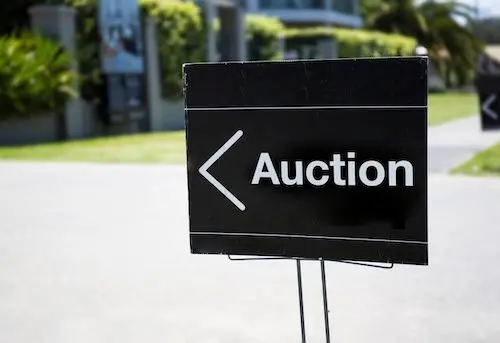
How to sell a house or apartment in NSW
Whether you're selling in Sydney or regional NSW, learn all the specifics to come out ahead.

Selling a home is one of the biggest financial decisions you’ll ever make, and it can feel overwhelming if you’re unsure where to start. Whether you’re looking to maximise your sale price, understand the costs involved, or weigh up a renovation, this resource will walk you through every step of the selling process.
At OpenAgent, we’ve helped millions of Australians sell real estate. We understand that every sale is unique, but being well-prepared, having the right strategy, and working with a great real estate agent are all key factors to achieving a standout sale.
This hub is designed to be your go-to resource for selling property, answering all your questions from what costs to expect, to finding the right agent and understanding your legal obligations. We’ll also keep you updated with the latest market trends, so you can make informed decisions in any market conditions.
Selling a property involves a series of important steps, and understanding the process upfront can help you avoid common pitfalls. Whether you’re selling for the first time or you're a seasoned vendor, having a clear roadmap will make the experience smoother, less stressful, and more likely to result in a great outcome. Here's a simple step-by-step rundown to help you navigate the journey.

Whether you're selling in Sydney or regional NSW, learn all the specifics to come out ahead.

If you're selling in the Sunshine State, here's everything you need to know about the process.

Victoria has a number of unique aspects to consider when selling property. Here's how to navigate them.

Please select your suburb from the drop down
Compare agents in your suburb to find the perfect fit for you.
When selling your property, you’ll typically choose between two main methods: auction or private treaty.
Auction – On a set date, buyers bid on your property and the highest offer above the reserve price secures the deal. Auctions can generate strong results in competitive markets. Once the hammer falls, there's no cooling off period where either party can change their mind.
Private treaty sale – Involves listing your property with an asking price and negotiating offers directly with buyers. There's more flexibility in pricing and conditions, making it a popular choice in balanced or slower-moving markets. This method can take longer but offers sellers more control and time to consider offers.
Selling a property involves more than just finding a buyer—there are key professionals who can help you navigate the process and achieve the best outcome. Here are the experts you may need to engage:
By assembling the right team of professionals, you can streamline the selling process, avoid costly mistakes, and give yourself the best chance of achieving a great result.
Want more information on these or other real estate terms? See our home seller glossary.
After a "short and shallow" downturn lasting barely three months, Australian property values shot back up to record highs in March, and nearly every capital city and state regional market has since been climbing in unison.
According to Cotality's latest report, the widespread uplift has been helped by the RBA's second interest rate cut in May, which reinvigorated consumer sentiment around the country. Most notably, the downturn in Melbourne and Sydney reversed, bringing consistent price growth back to both markets.
Lower interest rates are helping to lift confidence, though borrowing power is still somewhat restricted and affordability remains poor, which means we're unlikely to see boom-level growth in the near future. Now all eyes will be on the Reserve Bank of Australia (RBA) to see how far rates can fall in 2025 — the lower they go, the higher property values may rise.
Read our most recent property market update for more.

Tim Lawless
Research Director at CoreLogic

Tim Lawless
Research Director at CoreLogic

Louis Christopher
Managing Director at SQM Research

Louis Christopher
Managing Director at SQM Research

Luci Ellis
Chief Economist at Westpac

Luci Ellis
Chief Economist at Westpac
The market is shifting, and your home’s value might surprise you.
Selling your home has the potential to be an overwhelmingly emotional and stressful experience, as OpenAgent's latest round of research has confirmed.
We surveyed 344 Australian sellers who transacted over the past 24 months to find out just how significant the emotional toll of selling was for them. The results highlighted the fact that selling a property is far from easy.
Our survey found that:
Bridget Dijkmans-Hadley, a recent seller who used OpenAgent to compare agents and learn about the selling process, said the tears came fast when the first offer came in.
"I burst out crying because this is the home our little ones have grown up in, but also so relieved that we’d had that help and that it was over," she said.
Selling a property comes with plenty of moving parts. Check out our tools and expert guides to help you make informed decisions on costs, sale method, preparing your home, maximising sale price, navigating tax on investment property and selling during major life changes.
The right tools can simplify the selling process and give you a clearer picture of what to expect. From estimating costs and agent commissions to calculating capital gains tax, our expert-designed calculators provide personalised insights to help you plan and make informed decisions. Take the guesswork out of selling and make your next move with confidence.

Calculate the costs involved in selling your property and budget effectively.

Our 7-day email course will guide you through every step of the selling process.
Although every sale is unique, there are a number of selling fundamentals that every vendor will need to navigate. From understanding the cost of selling a house and preparing a property for sale to finding the best real estate agent, deciding between selling by auction or private treaty, and timing your sale perfectly, here are some of the vital resources that every seller needs to ensure a top result.

Understanding which method of sale is right for you is critical to getting the best result.

Learn how to make any buyer fall in love with your home without blowing your budget.

Your house has gone on the market - so what now? Prepare for the next steps.

Arm yourself with the knowledge around what makes an agent, not just good, but great!

Timing the sale of your property can make a huge difference to your final price and speed.

From obvious expenses to hidden costs, get the full rundown of what's involved.
First impressions matter when selling your property, and staging can be a powerful tool to attract more buyers and maximise your sale price. Thoughtful property styling helps create an inviting, neutral space where buyers can picture themselves living, while strategic updates like decluttering, fresh paint, and modern décor can make a home feel brighter and more spacious. Investing in home presentation can increase buyer interest, shorten time on market, and boost final sale prices.

A relatively modest investment in property styling can deliver significant returns if done right.

Is it worth renovating before selling? We'll help you weigh up your options.

Work out the best use of your time, money and effort when it comes to presentation.

Get the edge on your competition with the best-looking home on the block.

So you've decided to sell - find out the right moment to get your presentation in order.

One of the smallest rooms in your property can also have one of the biggest impacts.
Selling an investment property comes with unique considerations, from capital gains tax (CGT) implications to tenant agreements and market timing. Whether you’re looking to cash in on capital growth, offload an underperforming asset, or adjust your portfolio, understanding the financial and legal aspects is crucial. With the right strategy, you can maximise your investment property's sale price while ensuring a smooth transaction.

Understanding tax implications when selling is vital for any investor.

If you’re selling an investment property in Australia, understanding your options is key.

As you approach retirement, your investment property may stand as a cornerstone of your financial portfolio.

Looking to streamline your real estate portfolio or finally capitalise on the value of your asset? Here's what you need to know.

An all too common situation that's tricky nonetheless: how do you handle current tenants when selling?
Selling a house during a divorce can be an emotionally and financially challenging process, requiring careful planning and negotiation. From deciding whether to sell the family home or buy out your partner to understanding legal obligations and property settlement agreements, there are some delicate steps to navigate. A trusted real estate agent can help both parties achieve the best possible outcome while minimising stress during this difficult transition.

Divorce or separation is always stressful, and selling can only add to the challenge. Find out how to minimise your stress.

A helpful guide that covers how to sell a home through some of life's toughest challenges.
Selling a loved one’s home can be an emotional and taxing process, whether it’s selling due to a deceased estate, a transition into aged care, or other major life changes. Along with the personal toll, there are often legal and financial considerations to work through, such as probate, capital gains tax, and preparing the property for sale. Seeking professional guidance from a real estate agent, conveyancer, and financial advisor can help ease the burden.

It's important to get the support you need during one of life's challenging phases.
A great real estate agent is your biggest asset when selling a property, guiding you through pricing, marketing, negotiation, and the legal aspects of the sale. Choosing the right agent means looking beyond commission rates. Experience, local market knowledge, and a strong sales track record all play a crucial role in achieving the best possible outcome. Once you’ve found the right agent, clear communication and collaboration will ensure you stay informed throughout the process and can make confident decisions.

Finding the right agent for you can make all the difference when selling.

Everything you need to know for that crucial first sitdown.

The simple answer is often yes - here's how to approach your agent to get the best deal.

Everything you need to know about fees, commissions and the costs of selling your home.

Eliminate the guesswork from choosing an agent with our ultimate interview guide.

The partnership formed with your estate agent plays a pivotal role in the success of your selling journey.
Looking for location-specific advice? Check out our guides tailored to each state and territory:
Selling a house in Australia involves several key steps:
The best method of selling your property depends on market conditions, your property type, what market you're selling in, and your financial goals.
Selling by auction can be highly effective in competitive markets, as it encourages buyer competition and often leads to a faster sale with a strong price outcome. Private treaty sales, on the other hand, offer more flexibility, allowing sellers to list their property with an asking price and negotiate directly with buyers.
To achieve the best result, it’s essential to implement a strong marketing campaign with professional photos, maximise exposure through major real estate platforms, and ensure your home is presented at its best.
Working with an experienced real estate agent who understands your local market can help you determine the best method and strategy to maximise your sale price.
The time it takes to sell a house in Australia depends on market conditions, location, and the chosen sales strategy. In high-demand markets, homes can sell within 10 to 30 days or so, while in slower markets, it can take 60 days or more.
Auctions typically result in faster sales since they set a clear deadline and encourage competitive bidding, whereas private treaty sales can take longer due to price negotiations and buyer conditions.
The speed of sale is also influenced by factors such as pricing strategy, property presentation, and the effectiveness of the marketing campaign.
Working with a skilled real estate agent, setting a realistic asking price, and ensuring your home is well-prepared for inspections can help reduce time on the market and attract serious buyers more quickly.
Selling a house in Australia requires several important legal documents to ensure a smooth transaction. A conveyancer or solicitor can help manage the paperwork, ensuring all legal requirements are met for a successful settlement.
Real estate agent fees in Australia vary based on location, property value, and the level of service provided. Typically, agent commission is calculated as a percentage of the final sale price and can range anywhere from 1.0% to 3.6%, depending on market conditions and competition among agents in your area.
Some agents offer a fixed-fee structure, while others operate on a tiered commission basis, where they receive a higher percentage if the sale price exceeds a set amount. In addition to commission, sellers may also need to cover marketing costs, auctioneer fees, and other related expenses. To understand what agent fees look like in your suburb and how much you could expect to pay, use our Real Estate Commission Calculator to compare costs in your area.
In Australia, whether you have to pay tax when selling your house depends on whether the property was your primary residence or an investment property. Most homeowners are exempt from capital gains tax (CGT) if the property was their main residence for the entire time they owned it.
However, if you’re selling an investment property, a holiday home, or a property that has been rented out, you may be liable for CGT on any profit made from the sale. There are also CGT exemptions and discounts available, including the 50% CGT discount for properties owned for more than 12 months.
Other potential tax considerations include GST on property sales in certain circumstances. Since tax rules can be complex and vary depending on individual circumstances, it’s best to seek professional advice from a tax accountant or financial advisor.
Yes, you can sell your house before paying off the mortgage, but you’ll need to settle the remaining loan balance using the proceeds from the sale. When selling with a mortgage, your lender will issue a payout figure, which includes the outstanding loan amount, any early repayment fees, and potential break costs if you have a fixed-rate loan. Once the sale is finalised, your lender will receive the required amount from the sale proceeds before any remaining funds are transferred to you.
If the sale price doesn’t cover the remaining mortgage, you may need to pay the difference out of pocket. It’s important to speak with your bank or mortgage broker before listing your property to understand the financial implications and ensure a smooth settlement process.
Choosing the best real estate agent can make a huge difference in your final sale price and overall experience. Look for an agent with strong local market knowledge, a proven sales record, and positive customer reviews. Comparing multiple agents through an agent comparison service can help you evaluate their marketing strategies, commission structures, and recent sales results. It’s also important to meet with agents in person to gauge their communication style and negotiation skills.
The best agent for you will be someone who understands your goals, has a clear strategy to sell your home, and can confidently handle buyer inquiries and price negotiations. Check out our comprehensive guide on how to compare and choose the right agent for your sale.
To find out how much your house is worth, start by researching recent property sales in your area and comparing similar homes to get an estimate. Many real estate websites offer free property valuation tools, but for a more accurate home value assessment, consider getting an appraisal from a real estate agent or a formal property valuation from a licensed valuer. Factors such as market trends, property condition, location, and buyer demand all influence house prices.
To get a personalised estimate, try our free property value estimate tool, which provides insights based on the latest real estate market data, or check out our What Is My Property Worth guide.
To increase your home’s value before selling, focus on high-impact, cost-effective upgrades that deliver a strong return on investment.
Deciding whether to sell your house as is or renovate depends on market conditions, property condition, and your budget. In a hot property market, you may achieve a good price without major improvements, while in a buyer’s market, updates may be necessary to stay competitive.
If your home has structural issues or outdated features, small upgrades like painting, fixing minor repairs, and staging can improve buyer appeal. However, large-scale renovations may not always provide a high return on investment, so it’s essential to weigh the financial and time costs of improvements against potential sale price increases. A real estate agent’s advice and a pre-sale property assessment can help you make the right call based on current market trends and buyer expectations.